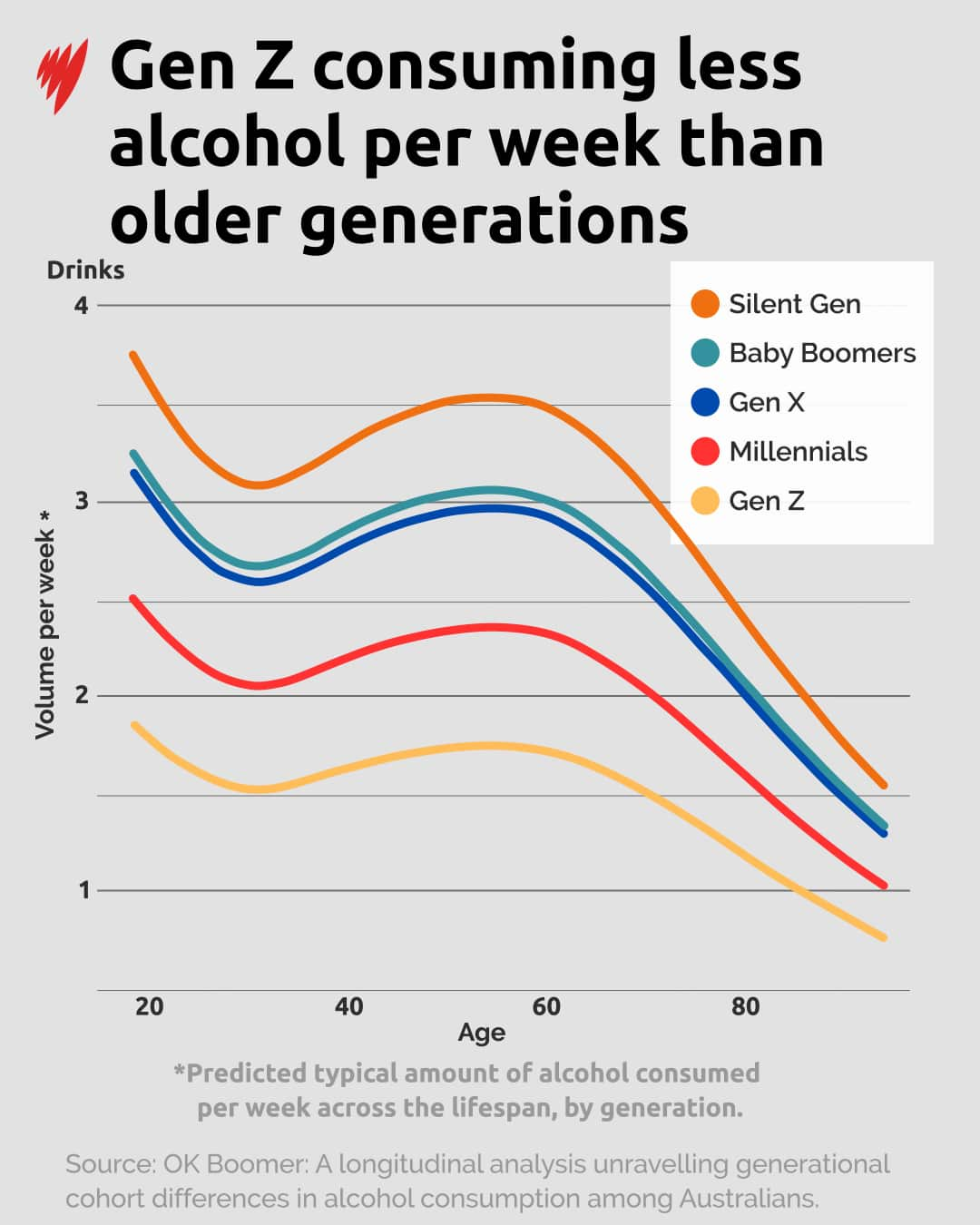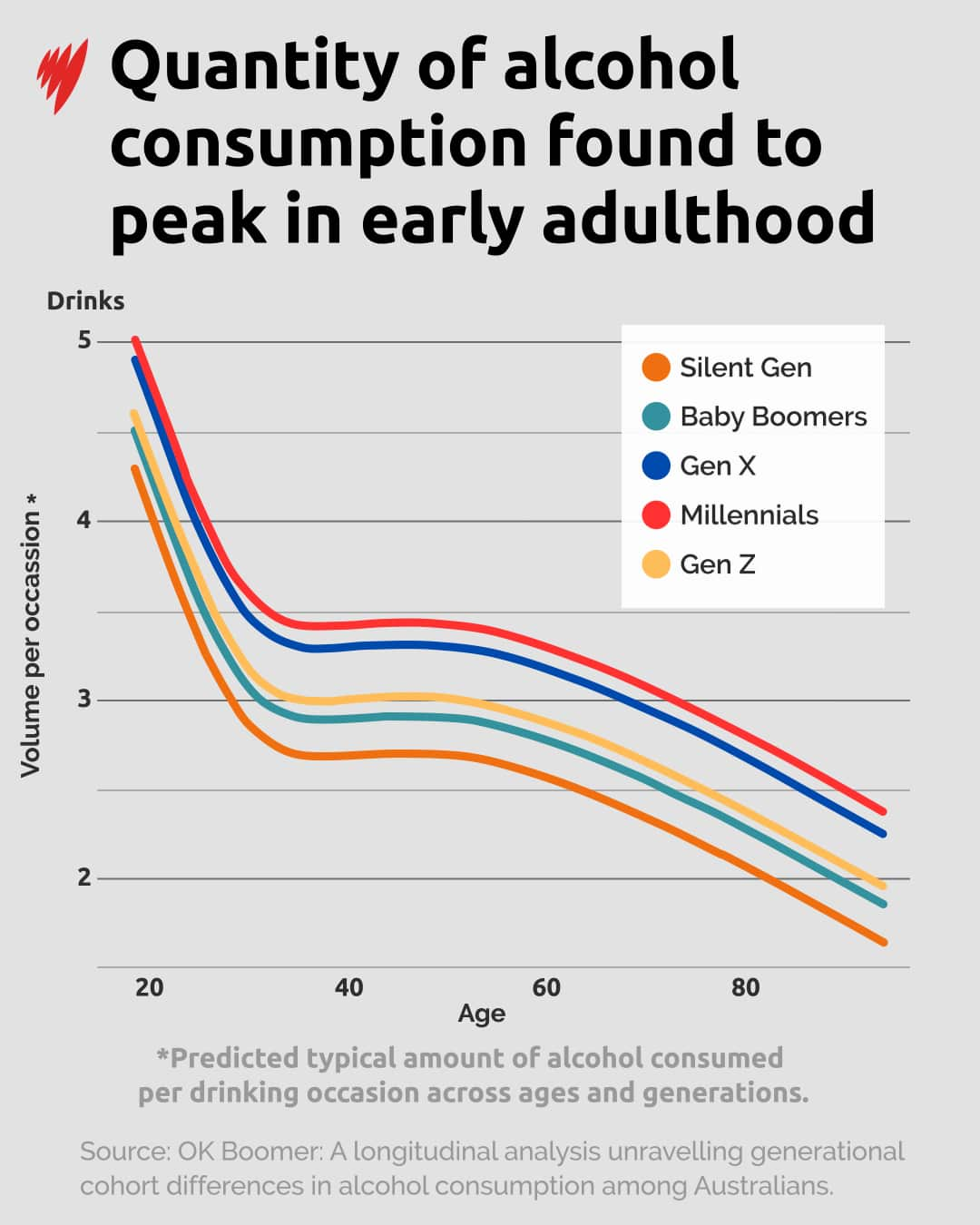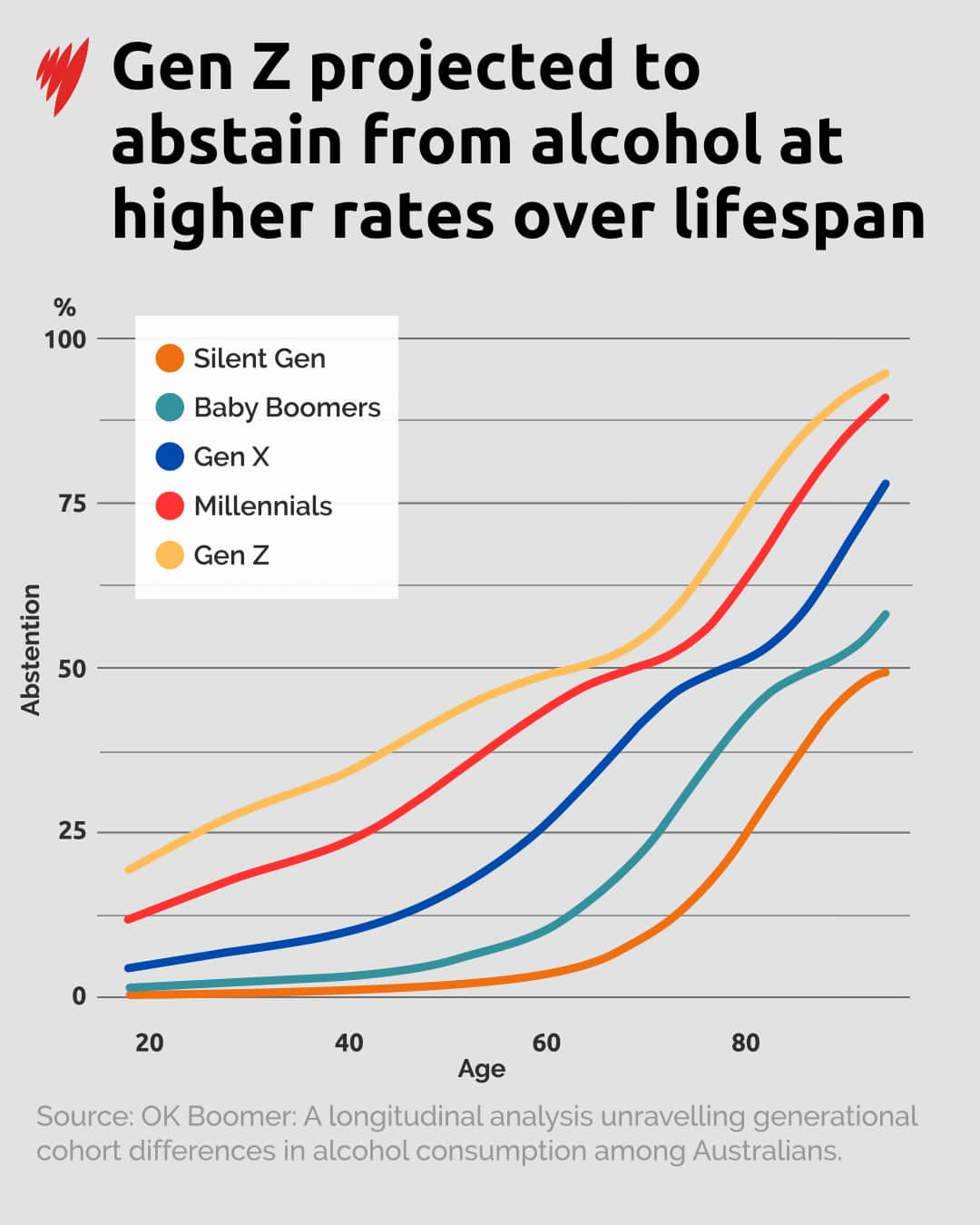The pub might be losing its pull — at least for younger Australians.
A new study suggests gen Z is turning away from alcohol far more than older generations, a trend that could bring major public health gains and signal a shift in the nation's "deeply embedded" drinking culture.
The research from Flinders University analysed 23 years of data to track and model drinking habits across five generational groups: the silent generation, baby boomers, gen X, millennials, and gen Z.
The model predicted gen Z were 18 times more likely to abstain from drinking alcohol compared to baby boomers over the course of their lives.
Gen Z Australians would also consume significantly less alcohol per week than older generations, the study estimated.

Lead author Gianluca Di Censo, a research fellow at the National Centre for Education and Training on Addiction (NCETA), told SBS News the first-of-its-kind study in Australia also assessed whether the trend would have a lasting impact.
"It's a really good sign because it's showing that it's not just in a certain period of time they're drinking less, it's likely that it's going to persist across their whole lives," he said.
Millennials are also drinking less than the generations before them, and along with gen Z, are projected to abstain from drinking at much higher rates throughout their lives than the two oldest generations.
Di Censo said things could change, and future societal or economic developments could throw the model off course — but for now, "it does seem like this is a permanent shift".
What's driving young people away from drinking?
While the study doesn't determine that, researchers suspect a number of factors are shaping this pattern.
These factors include the high cost of living, increased use of digital devices, rising consumption of health-related media, and a "cultural shift towards denormalising alcohol consumption".
"Gen Z feel as though they can go out and not drink and not seem like an outcast. There's also a normalisation of abstention and also a prioritisation of health and wellness," Di Censo said.

Michael Livingston is an associate professor of alcohol research at Curtin University's National Drug Research Institute.
He told SBS News there's a "complex social pattern" at play, including a "fundamental shift" in how young people interact, given how they spend so much time online, changes in parenting and more awareness of the health risks around alcohol.
"Young people are much more risk-averse now than they were 20 years ago," he said, pointing to research in other fields that shows declines in other risk-seeking acts among teens, such as those linked to road accidents, sexual behaviour and crime.
"Those risk-taking behaviours that used to be kind of a fundamental part of that transition into adulthood, they're not as prominent as they were."
Other studies have found young people are more likely to have existential worries about the future, including climate anxiety and financial concerns.
While a reduction in drinking is a public health win, Livingston said there are concerns that mental ill-health and anxiety are also on the rise in younger groups.
"One of the reasons people are drinking less is because they're worrying more, and that's obviously not a good outcome," he said.
The implications of a cultural shift
The study's co-author, Kirrily Thompson from the NCETA, said: "For decades, alcohol has been deeply embedded in social life, but that's changing."
"Younger Australians are redefining what it means to socialise and celebrate, and they're doing it with less alcohol," she said. "That's something we should be paying attention to, not just as researchers, but as a society."
Alcohol consumption is linked to a variety of health issues, including multiple forms of cancer, liver and heart disease. According to estimates from the World Health Organization, alcohol consumption contributed to around 2.6 million deaths globally in 2019.
The study's authors believe understanding the drivers of generational trends could help inform public health strategies.
They suggest policies such as minimum alcohol pricing, tighter restrictions on advertising, and targeted health campaigns could help support the downward trend.
Is this happening anywhere else?
Australians' changing drinking habits have been well documented.
Back in 2001, 70 per cent of young people in Australia aged between 14 and 17 said they had consumed alcohol in the past 12 months, according to the National Drug Strategy Household Survey. But that figure has dropped to about 30 per cent in recent years.

A similar trend exists across a number of high-income countries, including New Zealand, Canada, the United Kingdom and European countries such as Sweden.
Livingston said it's a common pattern across many countries "with similar historic drinking cultures" to Australia.
Will the trend last?
It's not clear whether the trend is here to stay, but researchers said they're optimistic.
"We're not very good at knowing what's going to happen in these big social changes in the future," Livingston said.
"I think certainly for this generation, the people in their 20s now, that cohort, will drink less through their life course than previous cohorts.
"But whether we continue to drive down teen drinking in the future is a mystery that we'll have to keep tracking."
Clarification: Some updates have been made to this story to better highlight that the findings of the study were based on modelled predictions of alcohol consumption.
For the latest from SBS News, download our app and subscribe to our newsletter.

